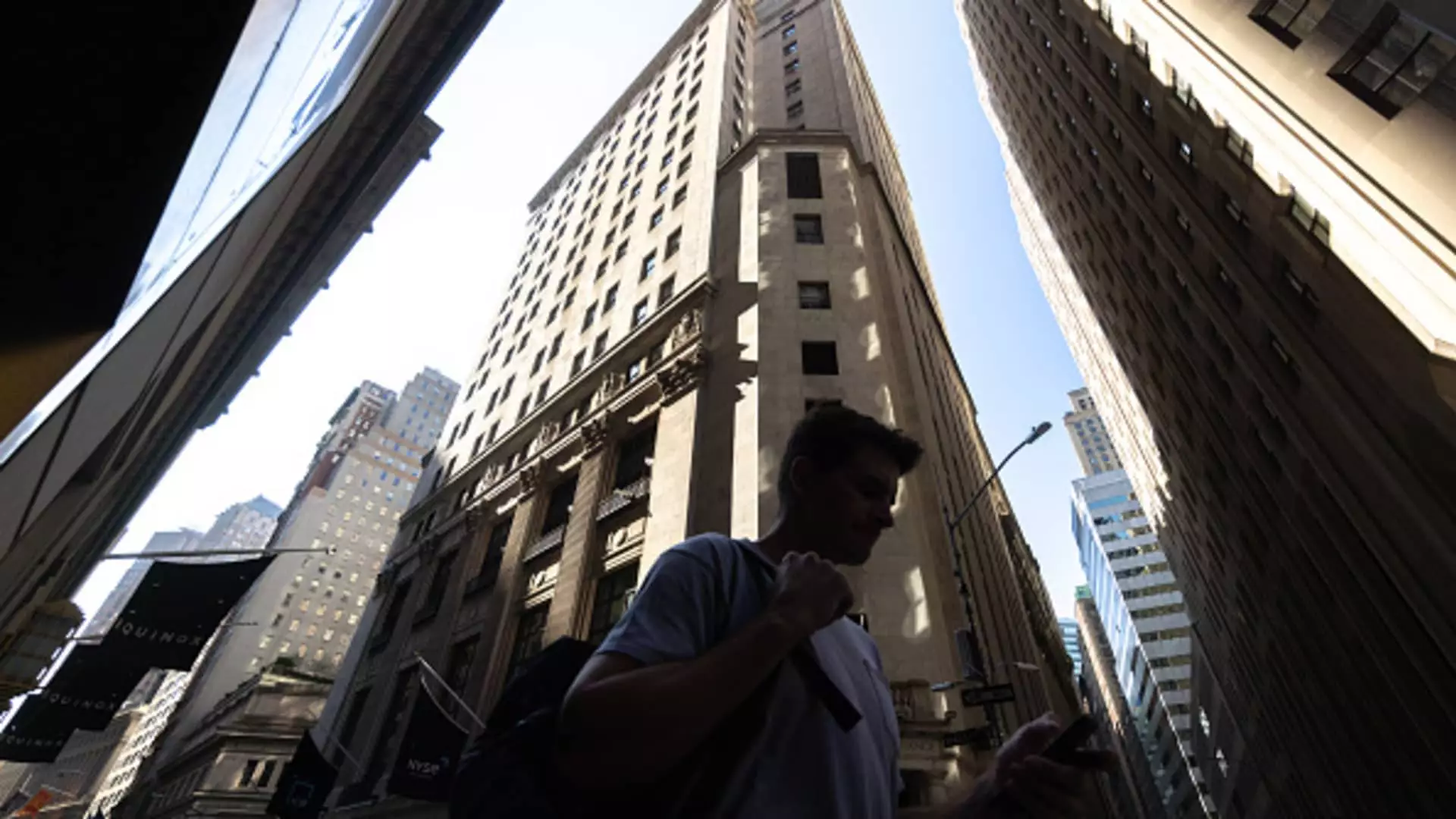There has been a swift rebound in market confidence following a significant global sell-off in risky assets, which is causing unease among experts. Christian Mueller-Glissmann, the head of asset allocation research at Goldman Sachs, expressed his concerns during an interview on CNBC’s “Squawk Box Europe.” He likened the dip in early August to a warning sign, suggesting that investors should tread carefully despite the current bullish sentiment.
The month began with intense pressure on stock markets due to fears of a U.S. recession and the unwinding of “carry trades” linked to the Japanese yen. On August 5th, the S&P 500 experienced a 3% loss, marking its most significant single-day decline since 2022. However, the situation quickly reversed as expectations of impending interest rate cuts from the Federal Reserve and positive U.S. economic data propelled stocks to new heights. The S&P 500 surged by 8% post-August 5th, while the Dow Jones Industrial Average climbed over 6%.
Mueller-Glissmann highlighted the rapid return of the market to its previous state as a cause for concern. Despite a brief correction, the market is showing signs of reverting to the same problems that existed a month ago. The head of asset allocation research at Goldman Sachs pointed out that while the S&P has recovered its losses, risk appetite has not fully returned to pre-sell-off levels. Safe assets like bonds, gold, yen, and Swiss franc have remained stable, indicating a lingering sense of caution among investors.
The upcoming release of a crucial U.S. inflation report is eagerly anticipated by market participants to gauge the health of the world’s largest economy. Scheduled for publication on Friday, the U.S. personal consumption expenditures data will offer insights into the Federal Reserve’s preferred inflation indicator. Federal Reserve Chair Jerome Powell’s recent statements hinting at policy adjustments have fueled expectations of a rate cut at the central bank’s meeting in September. Powell refrained from specifying the timing or extent of the cut, leaving investors to speculate on the implications.
Mueller-Glissmann, known for advocating a 60/40 portfolio mix, commended the balanced approach for weathering choppy market conditions efficiently. However, he cautioned that the bond market’s protective role may not be as robust in the near future. While the 60/40 portfolio experienced minimal drawdown during the recent turbulence, the reliance on bonds for stability might be challenged in the current market environment. With the bond market’s cushioning effect diminishing, investors are advised to exercise caution, especially after the recent rally in equities.
The rapid resurgence of market confidence following a substantial sell-off demands careful scrutiny from investors. While the rebound may seem reassuring on the surface, underlying concerns about risk appetite and the sustainability of the recovery remain. As market dynamics continue to evolve, a cautious and balanced approach to portfolio management is essential to navigate the uncertainties ahead.


Leave a Reply